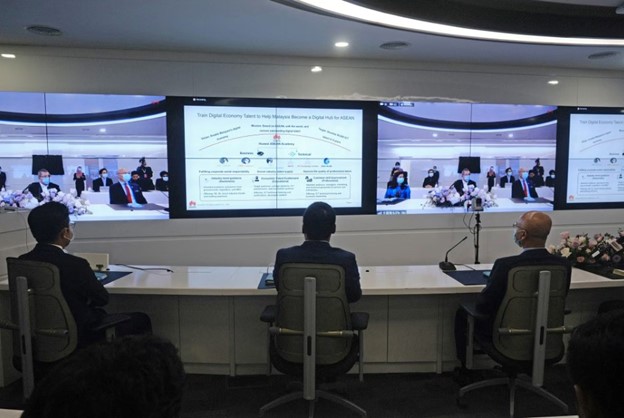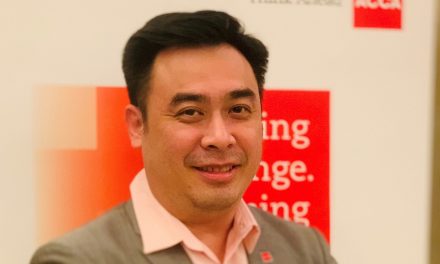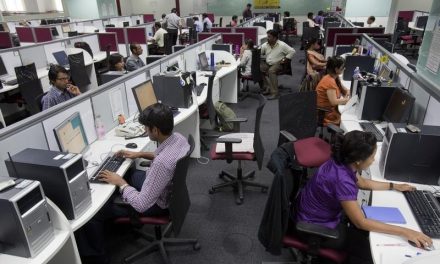Malaysia’s digital prowess will be accelerated by two pillars: Skilled tech talent and world-class infrastructure that will turn innovation into reality. When human expertise meets cutting-edge connectivity along with robust smart infrastructure, the nation will unlock its full potential as ASEAN’s digital capital.
The building blocks of this future starts in the classroom. Schools and universities must align curricula with industry needs to equip students with relevant tech competencies. As an ICT leader, Huawei actively bridges this gap through strategic partnerships with educational institutions, providing cutting-edge training programmes, certifications, and resources.
The Huawei ICT Academy serves as one of this initiative’s cornerstone, offering students hands-on experience in 5G, 5.5G, AI, cloud computing and cybersecurity. This practical approach ensures graduates meet industry demands while supporting Malaysia’s digital economy.
Technical Upskilling & Digital Leadership in National Workforce Development
While nurturing new talent remains crucial, Malaysia’s digital transformation equally depends on upskilling its existing workforce. Huawei Malaysia is collaborating with the Ministry of Human Resources (MOHR) to integrate advanced technologies like AI, cloud computing, 5G and IoT into national Technical and Vocational Education and Training (TVET) programmes, ensuring TVET instructors, students and industry workers remain up-to-date and competitive in the digital economy.
Notably, the collaboration has resulted in the newly launched JTM-Huawei TVET Centre at Institut Latihan Perindustrian (ILP) Kuala Lumpur. The innovative centre was unveiled in February 2025 and was developed in partnership with the Department of Manpower (JTM), under the Ministry of Human Resources. It is a concrete step in workforce development, aiming to train the first batch of 1,000 talents through Huawei-certified courses. As of now, over 400 trainees have received onsite hands-on training.
Parallel to this technical upskilling initiative, Huawei’s partnership with the National Institute of Public Administration (INTAN) continues to strengthen digital leadership capabilities across the civil service, driving more efficient and citizen-focused government services.
These efforts build on the success of the inaugural Digital Leadership Excellence (DLE) Programme, developed together with the Malaysian Communications and Multimedia Commission. The first cohort of 50 leaders from the government, academia and industry graduated in a ceremony officiated by Communications Minister Datuk Fahmi Fadzil in February 2025.
They underwent an eight-month hybrid programme which included a study visit to Huawei’s headquarters in Shenzhen, where participants developed practical digital solutions through capstone projects addressing real industry challenges as well as via visits to leading global tech companies.
Launched in March 2024, the DLE Programme was conceived as a direct response to Prime Minister Dato’ Seri Anwar Ibrahim’s call at the 2023 Malaysia ICT Summit hosted by Huawei Malaysia to bridge the gap between leadership and technology. The programme is set to develop 300 Malaysian Digital Leaders by 2026. Its primary aim is to equip leaders with the knowledge and tools to spearhead digital transformation within their organisations and improve operational efficiencies. The second chapter of the DLE Programme aims to engage 100 participants, while the third and final chapter will target 150.
Bridging the Talent Gap
The government has allocated a record RM82.1 billion in Budget 2025—including RM7.5 billion specifically for TVET—to cultivate homegrown ICT talent. However, closing the digital talent gap requires collaboration between industry, government, and academia to build a sustainable talent pipeline.
As a committed long-term partner, Huawei Malaysia maintains dual investments in both critical infrastructure and human capital development. Our numerous initiatives – including the expansive Huawei ICT Academy network and the transformative Digital Leadership Excellence (DLE) programme – demonstrate this dedication.
Huawei has now established 45 ICT Academies in public and private institutions of higher learning. We are proud to say we have surpassed our five year training target from 2021 – which was a target of 50,000 – by qualifying over 54,000 Malaysian professionals. These milestones underscore Huawei’s 24-year legacy of nurturing local talent and fortifying Malaysia’s digital ecosystem.
Together with the DLE programme, and the Huawei ICT Competitions at the local, regional and global levels, these efforts form a powerful ecosystem of digital advancement – where upskilled workforces, visionary leaders, and cutting-edge infrastructure converge to propel Malaysia’s position as Southeast Asia’s premier digital economy.
Talent Alliances
A multi-faceted approach is needed to address ICT talent gaps including cross skilling, upskilling and reskilling initiatives. These cannot be done in silo.
This is where public private partnerships with educational institutions and government agencies are crucial.
Only by working with the industry will the gaps between what is required and what is produced be addressed. In terms of Government, a rapidly evolving global ICT landscape requires Government personnel to constantly be abreast of technological advancements in the industry.
Huawei Malaysia will continue to innovate, invest and collaborate to drive Malaysia’s digital ambitions forward and turn potential into reality across all communities.
After all, it is the talent, rather than machines, that keeps us connected and Huawei is ensuring that the right people are in the right place to ensure the right change for the nation.
**Oliver Liu is the Vice Chancellor of Huawei ASEAN Academy










